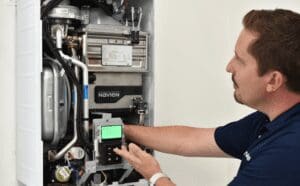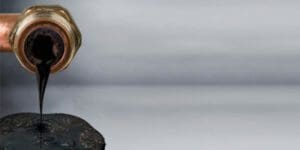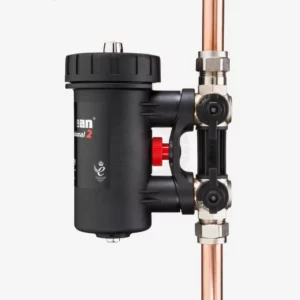Boilers are an integral part of many industrial and residential heating systems. They provide the heat necessary to keep our homes comfortable and our industries running smoothly. However, the efficiency and longevity of these systems largely depend on one crucial factor – water quality. The importance of maintaining optimal water quality in heating systems cannot be overstated. This blog post will delve into why water quality is so critical in boilers and how it can impact the overall performance of your heating system.
Understanding the Role of Water
Before we delve into why water quality is important, let’s first understand the role of water in boilers. In a heating system, water is heated to produce hot water, which is then circulated via a pump through pipes to provide heat. The boiler’s efficiency depends on its ability to transfer heat from the combustion process to the water effectively.
However, if the water used in this process contains sludge or debris, it can lead to various problems that can affect the boiler’s performance and lifespan. Therefore, maintaining optimal water quality in heating systems is crucial for their efficient operation.
This is why an annual boiler service is essential as the local gas engineer that is doing the boiler service will check your heating systerm for water quality.
The Impact of Poor Water Quality on Boiler Efficiency
Poor water quality can have a significant impact on both boiler and radiator efficiency as well. Impurities present in the hard water can cause scaling inside the boiler’s heat exchanger. Scale build-up acts as an insulator, reducing the heat transfer efficiency from the combustion process to the circulating water. This means that more fuel needs to be burned to achieve desired temperature levels, leading to increased energy costs.
Moreover, scale build-up can also lead to overheating and component failure due to restricted flow. Therefore, ensuring good water quality in heating systems not only improves their efficiency but also reduces maintenance costs associated with repairing or replacing damaged components.
This can also be said for sludge in your heating system. If left unattended, sludge will eventually get into your boiler and cause damage to essential components like the circulating pump. If the pump collects sludge, it will struggle to circulate the water and most likely start to cause overheating which could lead to your boiler shutting down
Corrosion: Another Consequence of Poor Water Quality
Another significant issue associated with poor water quality in boilers is corrosion. Dissolved oxygen and carbon dioxide in water can lead to the formation of corrosive compounds. These compounds can eat away at the boiler’s metal components, leading to leaks and system failure over time.
Corrosion can also result in the formation of rust particles, which can clog pipes and valves, affecting the heating system’s performance. Regular water treatment and conditioning are necessary to prevent corrosion and ensure the longevity of your boiler system.
The Importance of Regular Water Quality Checks
Given the potential issues associated with poor water quality, regular checks are crucial. These checks should include testing for hardness, pH levels, total dissolved solids (TDS), and other potential contaminants. By regularly monitoring these parameters, you can take proactive steps to treat your heating water and prevent problems before they occur.
Regular water quality checks also provide an opportunity to optimize your boiler’s performance. For instance, adjusting the pH level of your boiler water can help minimize corrosion risks while reducing scale build-up.
Another important aspect of having your water quality in the heating system checked regularly would be to validate your warranty on the boiler. If the boiler breaks down through dirty heating water in the system, most manufacturers will refuse to replace the parts for free as it will stipulate this somewhere in the warranty conditions.
Your water quality should be tested regularly during an annual boiler service. Here is a link to a Filter Manufacturer in the UK that will conduct testing.
How Do I Prevent Water Quality From Getting Poor?
Ensure that your boiler has a magnetic filter fitted to the heating system. The purpose of a magnetic filter is to absord any sludge particles that might be in the heating system before the water goes back to the boiler. A magnetic filter will protect the main components of your boiler.
The magnetic filter should be checked and cleaned out every year when your local Gas Engineer comes to service your boiler. Make sure this is something you ask the engineer to do as not all of them will check the filter during a boiler service. In our opinion, it actually should be checked during a service given the importance of ensuring the water in your heating system is kept clean.
Another important factor in precenting poor water quality would be to ensure that your heating system has the correct level of inhibitor in it. Inhibitors are designed to help slow down the rusting process to prevent sludge forming in the first place.
We strongly recommend that you have this tested during an annual boiler service. It’s not normally done as part of the service , however, if you ask the engineer to check this, they might charge you a little more but it’s well worth it.
What If My Water Quality Is Poor?
If it get’s to the stage where your boiler breaks down and/or the radiators have cold spots at the bottom, this is a sign that your heating system might have sludge in it. You should not ignore this sign as if left unattended this could lead to needing your boiler replaced. Call out a local heating engineer that specialises in power flushing and they will come out and flush your heating system. The cost can vary depending on a number of things such as:
The severity of any sludge build up and how many radiators are in your property. You should expect to pay anywhere around £350 to £500 to have your heating system flushed properly. We did a previous blog post on this subject, click here to read it.
Conclusion
In conclusion, maintaining optimal water quality in heating systems is not just about ensuring efficient operation; it’s about prolonging the lifespan of your boiler and heating system and saving on costly repairs or replacements down the line. By understanding how poor water quality impacts boilers/radiators and taking proactive steps to monitor and treat your water, you can keep your heating system running smoothly for years to come.
Remember that each heating system is unique; therefore, it’s essential to consult with a professional who understands your specific needs when developing a water treatment plan. With proper care and maintenance, you can maximize your boiler’s efficiency while minimizing potential problems associated with poor water quality.
We hope that you got some value from this blog post. Don’t forget to share with friends and family on your social media feed.






